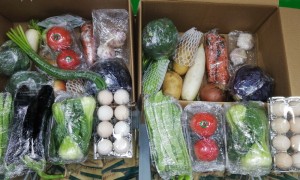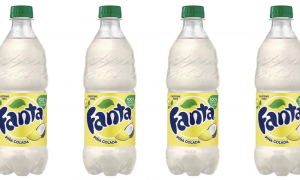导读:8月21日,青岛海关发布消息,一个走私团伙涉嫌在过去两年里走私超过5000吨海鲜到中国,目前已被抓捕。涉案总值达到了2.3亿元。

On Aug. 21, Qingdao Customs announced that a group of smugglers responsible for bringing over 5,000 tons of seafood into China over the past two years had been apprehended. The total value involved in this case is 230 million yuan.
8月21日,青岛海关发布消息,一个走私团伙涉嫌在过去两年里走私超过5000吨海鲜到中国,目前已被抓捕。涉案总值达到了2.3亿元。
In a survey administered early this year, customs inspectors found that some upscale seafood was being sold for cheaper prices than declared, which stood out as unusual. Customs officer Song Zhening explained that a large quantity of scallops, king crabs and fish was imported by vans licensed in Southwest China’s Guangxi.
今年早些时候的一项调查显示,海关检查员发现有一些高档海鲜一直以明显低于报关进口价格的价格售卖,显得十分不合常理。海关官员宋哲宁解释道,大量的扇贝,帝王蟹和鱼类都是由注册在广西省的卡车所进口的。
"The seafood originated in Japan, Russia and the U.S., so why did it come in vans from Guangxi?" Song mused. "It was strange."
宋说:“来自日本,俄罗斯和美国的海鲜怎么会从广西由卡车进口呢?这非常奇怪。”
As the investigation got underway, a seafood import and export company in Shandong became a primary suspect. Manipulated behind the scenes by a man surnamed Wang, the corporation had branch companies in Shandong, Fujian, Liaoning and Guangxi provinces. There was also a branch in the U.S.
随着调查的深入,一家山东的海鲜进出口公司成为了头号怀疑目标。该公司由一个姓王的男子在背后操控,在山东,福建,辽宁和广西几个省都有分公司。还在美国也有分支。
Inspector Li Fudong figured that, in order to avoid sanctions, Wang stayed in the U.S. year round. All of the business’s contacts were handled by the U.S. branch. After receiving payments, domestic companies transferred the money abroad via underground money exchangers.
调查员李福东说,为了避免处罚,王姓男子一直呆在美国。所有的商业合同都是在美国分部进行操作的。受到付款后,国内公司将钱通过地下钱庄转移到国外。
On June 24, Wang was captured by police in Penglai Airport. Meanwhile, customs officials stopped the other suspects in Shandong, Fujian, Guangxi and Liaoning.
6月24日,警方在蓬莱机场抓到了王姓男子。同时,海关官员在山东,福建,广西和辽宁也控制了其他犯罪嫌疑人。
Additionally, inspectors found that the seafood came into China via a detour in Vietnam, as the smugglers were trying to avoid duty and quarantines. Some of the seafood also came from Fukushima, Japan.
另外,调查员们发现这些海鲜是绕道越南进入中国的,因为这些走私犯们想要避开关税和检疫。有一些海鲜是来自日本福岛的。
After the 2011 earthquake, Fukushima was polluted by nuclear radiation. Almost all countries therefore forbade the importation of seafood from Fukushima. Even local residents don’t eat it. Thus, the price of upscale seafood from Fukushima dropped precipitously.
2011年地震后,福岛受到了核辐射的污染。几乎所有的国家都因此禁止进口福岛的海鲜。甚至当地居民都不吃。因此,福岛的高档海鲜价格陡降。
Li explained that the smugglers gathered the commodities in Hokkaido. They then transported the seafood to Fangchenggang city of Guangxi and Shandong province.
李福东说,走私团伙从北海道去购买商品,然后他们将这些海鲜运到广西防城港和山东省。







